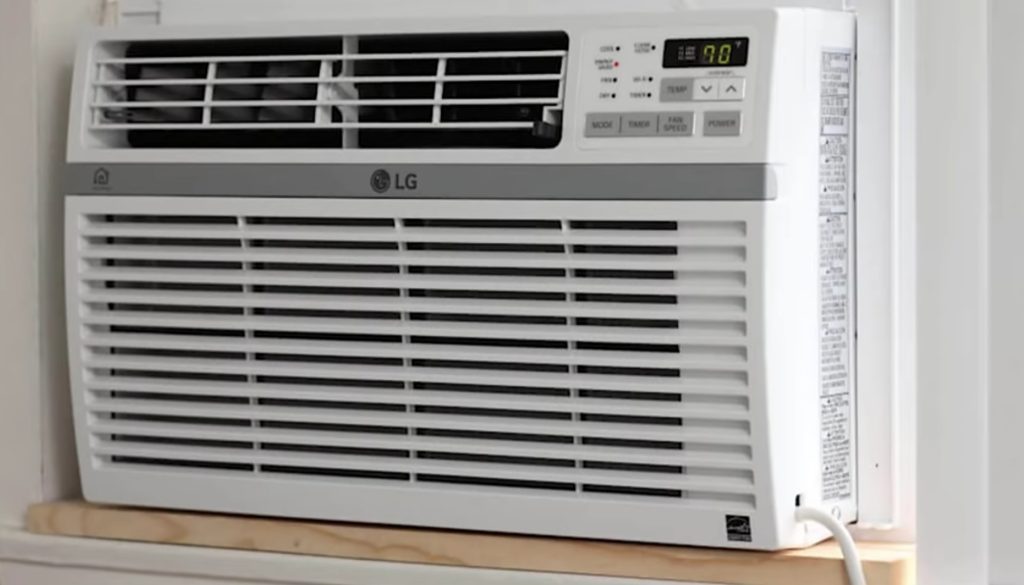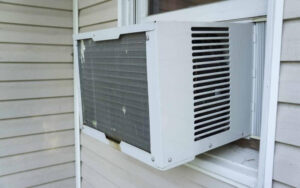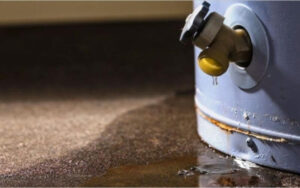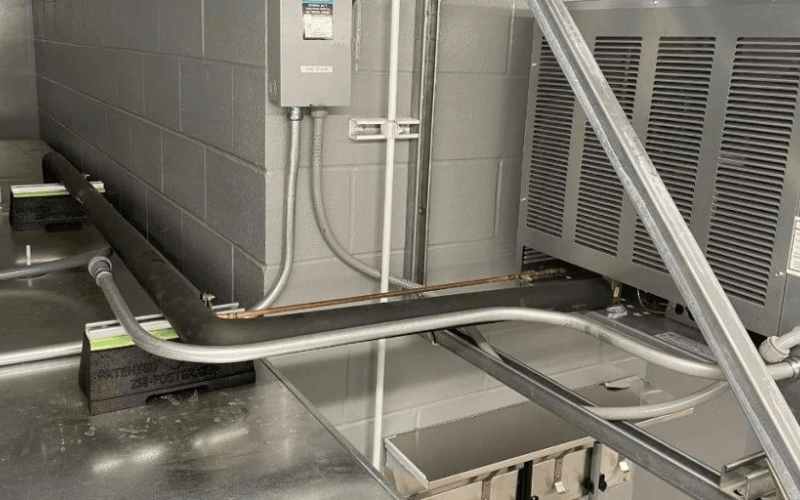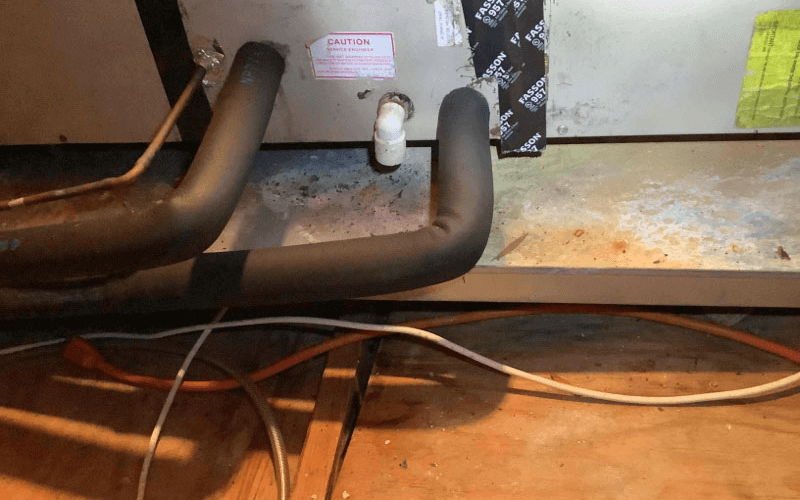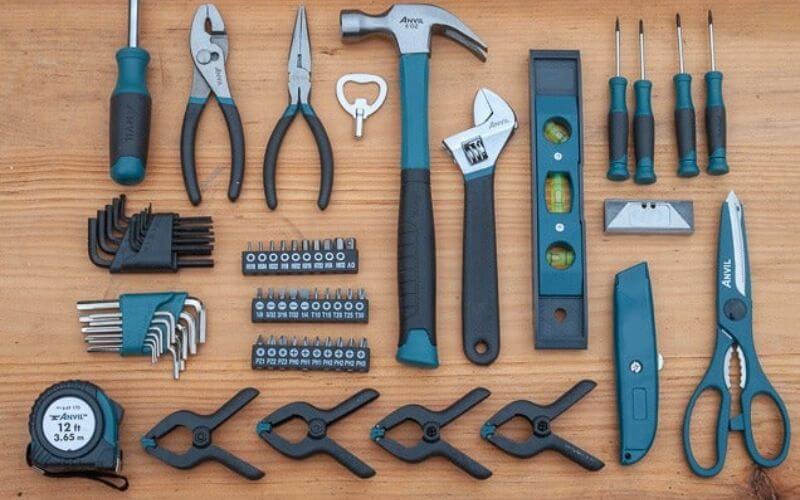Summers in some areas are hot and humid, with frequent summer storms. As a result, an air conditioner is a practical necessity. Window ventilation may be necessary, particularly if rain prevents you from opening windows for fresh air. However, you may be concerned about running the air conditioner on a rainy day. Can rain cause harm to window air conditioners? Is it necessary to Place A Window Air Conditioner in the window while raining? We sought clarification from the air conditioning engineer.
Table of Contents
ToggleThe window air conditioner is unaffected by rain. It will not be harmed or affected in any way. The air conditioner’s electrical components are sealed to prevent water damage. Water accumulation, such as floods, is the only real risk of an air conditioner. For more information, keep reading.
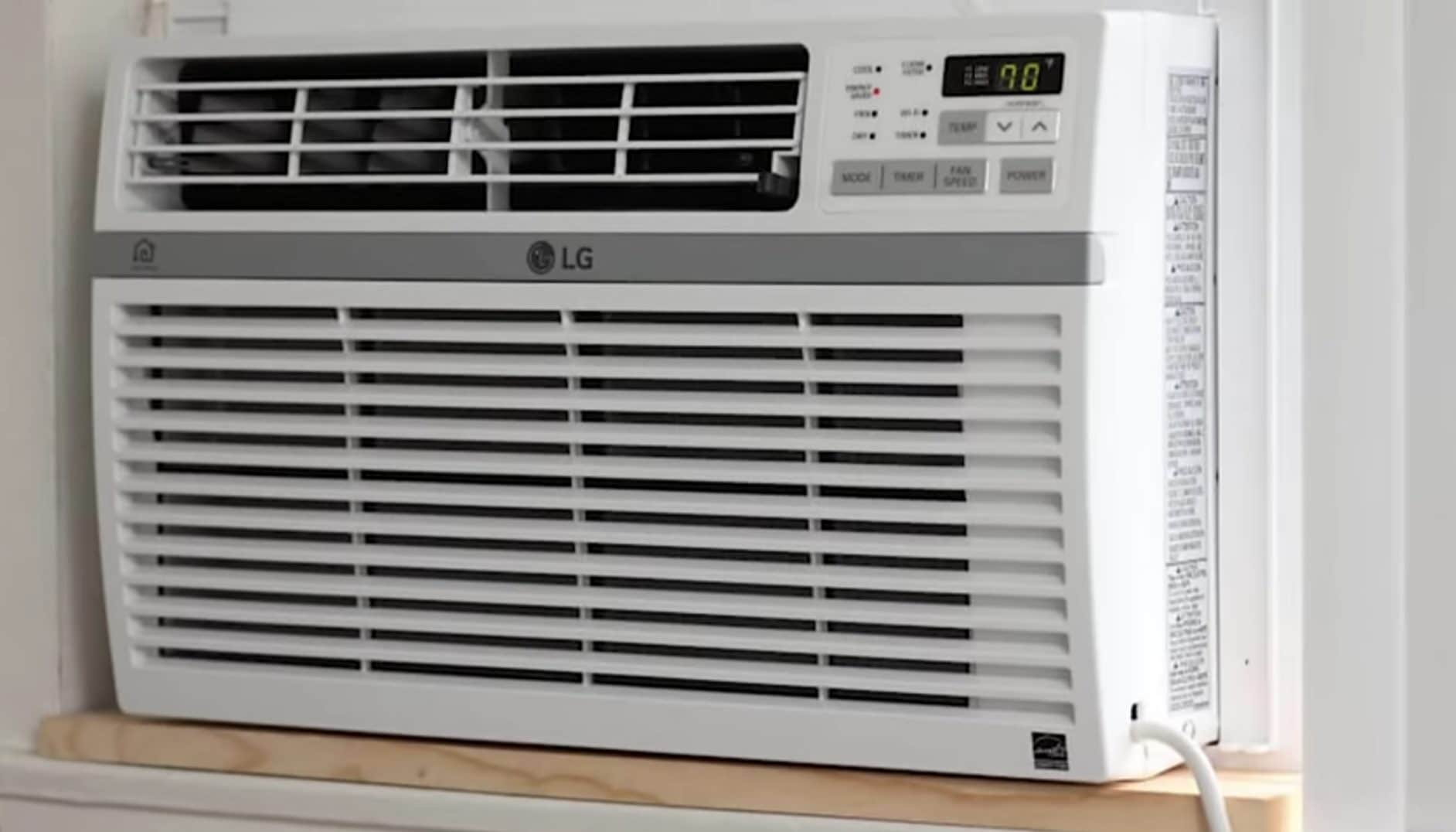
Air Conditioner and Water
Even light rain will not damage the window unit. There is no issue because the dry parts are sealed and protected. However, when a strong windstorm hits, debris can become entangled in the fan and cause problems. As a result, it is always a good idea to quickly inspect the unit following a heavy storm. Examine it to ensure it is not entangled in leaves, sticks, or other debris.
Standing water is another point of concern. The electrical components may short if the system is left in standing water. If this happens, it is best to have an HVAC technician inspect the air conditioner before restarting it once the water has been drained.
Also check: Do Central Air Conditioners Have Filters?
How can you keep the rain from falling on the window air conditioner?
Rain does not affect the air conditioner’s performance, so there is no reason to avoid it. Some people, however, use their covers to conceal window air conditioners. It isn’t because of rain, but rather to keep the unit out of the debris. Fallen leaves, for example, can clog the fan and impair device performance.
Use only covers designed for this purpose when covering the air conditioner. Do not put your device in a homemade case, especially one made of plastic. A typical “mistake” is using a garbage bag or tarp. Anything that collects moisture in an air conditioner can cause it to malfunction. It can lead to rust and mold, causing the unit to fail prematurely.
Should you conceal your air conditioner?
Covering the device protects the painted case from the elements and keeps debris out of the vents. If you’re trying to keep your device dry, it’s unnecessary. Suppose you’re concerned about sticks and leaves getting stuck inside. In that case, the AC unit manufacturer can provide you with a one-of-a-kind cover.
Do not cover your device with plastic sheets or trash bags. Plastic traps moisture, which causes rust and mold and accelerates the deterioration of your device.
How should a window air conditioner be sealed?
Even a light rain did not affect the window air conditioner. On the other hand, the rain will damage the window frame if it leaks through the gaps in the window air conditioner with the incorrect structure.
There are several methods for filling these gaps and keeping water where it belongs. Even small openings that do not allow water to leak will reduce the air conditioner’s effectiveness due to air leaks.
Rope caulking helps fill small holes and gaps that are difficult to fill. It has the consistency of clay. You can cut off as much (or as little) as you need and stuff it into a fit. It is also removable and, in some cases, reusable if it is still moldable and clean. Seal it in a plastic bag until you need it again.
Is it necessary to maintain the window air conditioner?
Window air conditioning is less complicated than a whole-house system. It is not, however, maintenance-free. Clean the filter at least once a month if you use the air conditioner frequently. If you don’t use the air conditioner frequently, you can go a little longer between cleanings. The filter is simple to remove and soak in warm soapy water. Allow drying before returning to the air conditioner after rinsing until clean.
Some individuals attempt to keep the air conditioner on the windowsill. Finally, the installation is cumbersome, bulky, and time-consuming. Consider removing the obvious if you live in an apparent “off-season” location where you typically do not require air conditioning. It will last longer and perform better if you are motivated by it. Set it aside and cover it with a cloth to keep the dust out.
Also check: Does A Window AC Have to Be in A Window?
Work on annual maintenance
There are also maintenance tasks that must be completed once a year. Please make this a habit before installing or removing the unit at the end of the season. If you do it simultaneously every year, it will become a habit.
- Thoroughly clean the fins. Dust, dirt, and mold can form if left unchecked. Combine water and a few drops of dishwashing liquid in a spray bottle. After applying, gently rinse with a hose.
- Do the same with the fan. Spray with soapy water, brush lightly, and rinse with a hose.
- Inspect and empty the drain pan beneath the register. Condensation may form and drain dirty water because of this. Check the drain for debris as well. If dirt clogs the hole, it may recede.
- Once the job is complete, check to see if the fins are bent. Avoid touching the fins as they get easily bent. Straighten anything bent. You can pay with a credit card, but you must be patient. You can also use a unique tool known as a fin comb.
Prevent the window air conditioner from rain!
There’s no need to worry about a bit of rain hitting the air conditioner in your windows. Some electrical components are water sensitive, but they are carefully sealed. Water is only a severe issue during floods. If your device is still submerged in deep water, consult a specialist before turning it on.
The AC cover is not intended to keep water and dirt out. After a storm, inspect the unit for leaves, sticks, and other foreign objects that could obstruct the fan. You must maintain a proper Air Conditioner Clearance when installing to keep it away from leaves. It is also necessary to perform routine maintenance regularly, such as Cleaning Filters, fins, and fans, emptying drain pans, and straightening bent fins.

